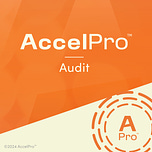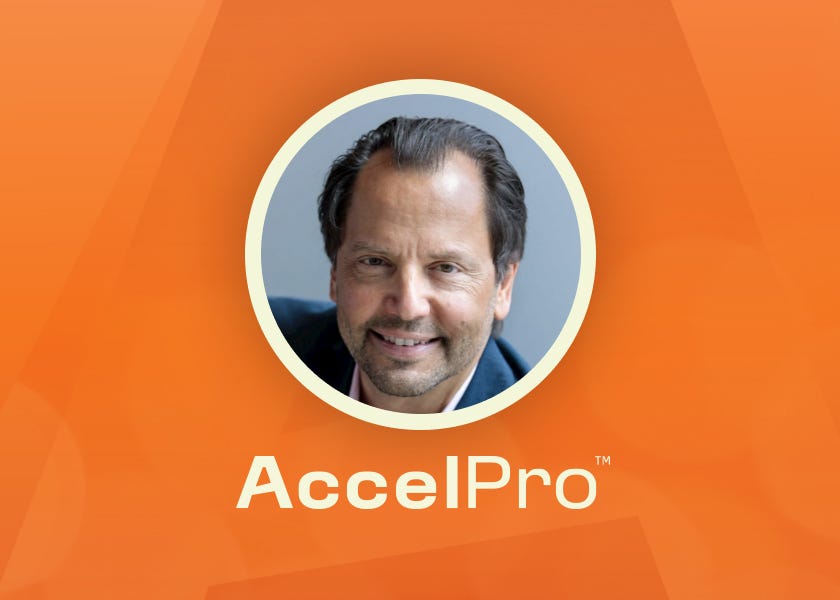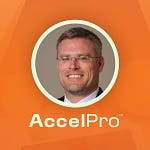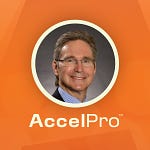Listen on Apple Podcasts, Spotify and YouTube
Welcome to AccelPro Audit, where we provide expert interviews and coaching to accelerate your professional development. Today we’re featuring a conversation with Luigi Zingales, Professor of Entrepreneurship and Finance at the University of Chicago Booth School of Business.
For auditors to properly gauge how much effort they should devote to searching out fraud, it would be helpful to know exactly how common corporate fraud is. In a recent paper, Italian academic Luigi Zingales and his collaborators came up with a clever methodology to answer exactly this question.
In this interview, Zingales talks about the eye-popping results they achieved, and what the numbers suggest about the proper role of auditors. He also discusses the current SEC whistelblower program and his stint setting up a research center for the Public Company Accounting Oversight Board (PCAOB) and what the experience revealed about “distorted” audit regulation.
Listen on Apple Podcasts, Spotify and YouTube
Interview References:
Luigi Zingales’ Chicago Booth profile.
1:33 | Dyck, I.J. Alexander and Morse, Adair and Zingales, Luigi. How Pervasive is Corporate Fraud? (January 2023). George J. Stigler Center for the Study of the Economy & the State Working Paper No. 327.
6:17 | Sarbanes-Oxley Act of 2002, H.R.3763, (2002).
19:20 | S.1562 - False Claims Amendments Act of 1986. 99th Congress (1985-1986).
20:27 | Dodd-Frank Wall Street Reform and Consumer Protection Act, H.R. 4173 Public Law No. 111-203, (2010).
Supplemental Materials:
PCAOB Solidifies Foundation of Every Audit With Adoption of New Standard on General Responsibilities of the Auditor. (13 May, 2024). Public Company Accounting Oversight Board.
TRANSCRIPT
I. RESEARCH INTO HOW COMMON FRAUD IS EXACTLY
Jessica Stillman, Host: I want to start out by asking you about one of your most recent papers that looks at an important question for auditors: how common is corporate fraud? You and your collaborators used quite a clever methodology to come up with an estimate. Can you talk me through how you set about determining the prevalence of corporate fraud and what numbers you came up with?
Luigi Zingales: So, the problem is that you cannot just observe how much fraud is caught because, generally, the resources devoted to catching fraud are not perfect; you're not going to catch them all. It's very difficult to detect the part of the iceberg that is below the surface, and so we use this following idea.
When Enron went bust, there was a major soul searching by all audit companies because Arthur Anderson was dragged into the collapse with Enron. The idea is, when it comes to financial fraud, in the months immediately after the demise of Enron and the demise of Arthur Anderson, all the companies that used to have Arthur Anderson as an auditor suddenly get a different auditor.
If I am EY and I take over an account that used to be with Arthur Anderson, I want to be double sure that nothing bad was going on. And so we say, for a short period of time, some companies get scrutinized much more than the others. Let's take the extreme assumption that in that period, every sort of financial fraud was uncovered because people were so concerned about reputation that they cleaned up everything - vis a vis companies that switch auditors.
If I was with EY or PwC before and after, I'm unaffected. Again, this is an extreme assumption which I’ll qualify in a second. But under this assumption, the difference between the frauds uncovered, between former Arthur Anderson clients and the fraud uncovered in everybody else, that difference is the number of frauds that normally get undetected.
JS: Very clever.
LZ: Let me qualify this because I think there are three key assumptions here that are crucial, and I will tell you to what extent they bias the results. So assumption number one is, every fraud is uncovered during that period. Probably not. We're not too concerned because as a result of that, we bias our results on the low side. We underestimate the amount of fraud. So, as you will see in a second, the number is so large that we're not too worried about that concern.
Concern number two, which is a real concern, is that, even if you are not a former Arthur Anderson client, maybe people get a little bit more nervous, and so they're going to clean up more, including EY and PwC. Again, this will reduce the difference between the two, so we'll underestimate the amount of fraud taking place before.
The only assumption that is really crucial is whether on an ex ante basis Arthur Anderson or Arthur Anderson clients were worse than the others. So, Arthur Anderson was collecting every bad company on the face of earth, and then, of course, after the demise they found more fraud because it was from a selection of bad companies.
But in fact, we look at all the accounting literature, and everybody swears that Arthur Andersen was no worse than anybody else. The Supreme Court decision to revert the criminal conviction of Arthur Andersen validates this assumption. And honestly, we have seen documents that Arthur Andersen, except maybe in the Texas office, was no different than any other audit company.
Now that I’ve told you all the assumptions so you know what you're buying, let me tell you the result. On average, 10% of large publicly traded companies are committing some form of fraud every year. When I say fraud, I mean material fraud, because these are frauds that are significant for the account; the cost of this fraud is of the order of magnitude of 1.6% of the equity value, which corresponds to $830 billion a year.
JS: You conclude in the paper that, “The magnitude of the problem suggests that some action was warranted,” which is a very polite and academic way to say that. What are your thoughts on the type of action needed?
LZ: First of all, most of our data predates Sarbanes Oxley, and so this massively justifies all the expenses of Sarbanes Oxley.
The PCAOB is expensive, but its expenses pale in comparison to the potential cost. So that's the reason why I think this number is so important. In Washington they pay attention to the cost benefit analysis, which I think is a very useful tool to decide when it's worthwhile to intervene or not.
However, all too often, the cost benefit analysis goes as follows: I can measure the costs very well, and they're big, and the benefits are vague, so let's assume that it’s zero and as a result, nothing is worth adding.
But then you put a number on it — let's say that we can reduce by 10% the incidence of fraud — that is $83 billion a year. Do you know how many PCAOB-type agencies you can pay for with $83 billion a year?
—
II. ON THE PCAOB, ‘DISTORTED’ REGULATION AND THE NEED FOR REFORM
JS: I want to talk about the PCAOB and what they're doing now, but you actually have a bit of a history with the PCAOB. In 2013, you were founding director of their Center for Economic Analysis. Can you tell me a little bit about your work there?
LZ: As you know, and as my listeners should know, I'm not an accountant by training, but I was very keen on the political economy issue of every form of regulation. And so I got approached by then Chairman Doty and his right hand person, and the legal counselor, and they pushed me to actually become a director of the research center.
I wasn't ready to give up my academic position for that. I said, “Why don't you help us create a research group here?” I thought it was a very interesting experience because I'd never consulted for a public agency in the United States.
So I got my small peek into the world of Washington, and particularly into the world of auditors. And I came out of that experience, number one, with an even stronger appreciation of how important the auditor's job is. And with all due respect, I don't want to use the word corrupt, but how distorted the regulation, the policy, of auditing is.
If you ask any normal human being why audit exists, they will say it is to prevent fraud. It's not just to check that two plus two equals four, because especially with computers, you trust that they know how to add, subtract—even multiply and divide. I'm not an historian, but my reading of history is that audit was invented precisely by external financiers who wanted to make sure that their money did not disappear.
Once auditors got auditing to be mandated by regulation, which I'm not disputing as a rule, but then of course demand was ensured. And so what you do is try to reduce cost, and particularly reduce liability. Since the moment they mandated auditing, auditors started to claim that it was not the auditor's job to find out fraud, which is very strange.
My experience was a lesson, also, of capture. The chairman of the PCAOB is appointed by the SEC, by the Securing Exchange Commission. However, in this appointment, a major role is played by, I think it's the Office of the Chief Accountant at the SEC. And the chair of the Office of Chief Accountant is generally a retired general partner of one of the top four audit firms.
So, most of the time, you're basically a former fox in charge of the hen house. And if this is not enough, in the office of chief accountant, there are some young fellows that help run the place. These are people that are on temporary leave from the top accounting firms. Basically you have employees of the top accounting firms in charge of regulating the top accounting firms. When they told me that, I asked three times because I couldn't believe that to be the case.
JS: That's quite the segue into the next topic I wanted to talk about, which is the efforts of the PCAOB to update its standards and its regulations around fraud. The PCAOB has proposed updating its standards in a particular way that would require auditors to be more vigilant when it comes to fraud by strengthening their requirements to identify and communicate possible or actual noncompliance with laws and regulations. That change has received a lot of pushback from the Big Four firms. Where do you stand on the proposed change?
LZ: I'm delighted that they’re going in this direction. I think that, as I said, the audit job is fundamental and has been devalued by making it just a ‘check the box’ kind of a role. I think it is a crucial role in ensuring the functioning of a good capitalist system.
I co-host a podcast that tries to understand what is working in capitalism today and what isn't, and I think one of the things that isn't is that large corporations often get away with murder. And what I really like about the proposal is it’s not just limited to financial issues, but it's more broadly aimed at compliance in other areas, also. For example, environmental compliance, which, of course, has an enormous liability effect.
I don't think you can get a good sense of the financial accounts if you're not assessing what risk these guys are taking regarding violating compliance. And the first people to be blind to that are the board members. I spent some time on corporate boards, so I saw what happens in corporate boards, and I can tell you, no matter how smart you are, you are overwhelmed by the fact you have hundreds of smart people working against you.
I remember one company, I was on the board, and the compensation of the CEO was in part linked with cash flow, not EBITDA, but cash flow. At the end of the fiscal year, they did a derivative operation that increased their cash flow.
And I spent more time than I care to admit trying to figure out what was the trick. Because my sense is there was something funny going on. I couldn't win. The CEO has a hundred accountants ready to work for him, but even if I were to pay with my own money, I couldn't hire somebody because I couldn't reveal secrets of the company.
It is really an unfair battle, and that's the reason why I think that the auditors must have a responsibility to communicate that directly to the board. And, if the board does not listen, they should go and communicate to the authorities. But the first line of communication should be to the board.
—
III. WHY AUDITING SHOULD BE SEEN AS A MISSION-DRIVEN PROFESSION
JS: All of this is super fascinating on a regulatory level, but a lot of folks listening are not going to be able to influence those kinds of decisions. Is there anything you would say to the average audit professional in the trenches?
LZ: My message is very simple. Your profession is super, super important. Most Gen Y kids have the aspiration to change the world. And I think that is a very valuable aspiration, and I respect them for that. But they don't think about accounting, particularly auditing, as such a mission driven or purpose driven profession.
I think that auditing, done well, is really extremely important, not only for the functioning of capital markets, but for the functioning of the entire economy. Even more so if these rules of the PCAOB go through for the environment and the safety of all of us. Your role is very important. Don't forget this. Sometimes it's costly to stand up to a boss and sometimes it's lonely, but I think that the message is, it takes a village.
I have a strange passion for studying fraud, because I believe, like the Federal Aviation Administration, after every crash and near crash, you have to study what went wrong and you learn how to fix it. As a result, we have a stunning record of safety in airplanes.
So I think that doing this analysis is very useful. I have done it a lot and what I discovered is fraud in all forms rarely emerges as a result of just one person. It emerges as a result of a bunch of people that leverage each other to finally bring this to the open.
Think about an auditor as an ant that is putting a brick on an important wall. You might not see the entire wall, but without your brick, the wall is not going to be built.
JS: How did you end up focusing your research on fraud and the ways that capitalism isn't working so well?
LZ: First of all, I come from a country where capitalism has never worked very well.
JS: That's Italy, right?
LZ: Yes, so I'm naturally predisposed to that. My eyes are more open to the risk, and if you were born in the United States with a system working well overall until very recently, you didn't even pose certain questions. The other thing is, of course there are a lot of people who criticize the capitalist system, but most of them tend to criticize with the desire to destroy it. I try to criticize in order to fix it.
My obsession, I think, started by first reading about a Parmalat case. Parmalat was a major financial fraud in Italy in 2003, and I was lucky because I was asked to be an expert witness in a case where the new Parmalat was suing Citigroup for aiding and abetting the crime of old Parmalat. As a result of that, I spent a lot of time studying every little detail of the Parmalat case.
One of the many frauds that Parmalat did was to over-invoice and overstate the revenues. How did they do it? They had a special Cuban account and were billing Cuba for milk. And so I later learned that the employees were making fun of the fact that if you divided the milk sold to Cuba by the population of Cuba, every Cuban was like the Roman empress Agrippina, taking baths in milk because you couldn't possibly consume milk at that rate.
So you have the Italian auditor, you have the Italian SEC, you have the American SEC, you have the credit rating agency, you have so many organizations to evaluate Parmalat, and the employees knew that there was fraud. But nobody was listening, so that's the reason why I became a big supporter of the idea of rewarding whistleblowers because that is a way to bring the information up in the system.
—
IV. ON IMPROVING THE SEC’S WHISTLEBLOWER PROGRAM
JS: Can you talk about what makes for a good whistleblower program?
LZ: The whistleblower program is a very Hayekian idea from von Hayek the liberal economist, because he was about giving responsibility to where the information is. Hayek thought that the market was so great because the market not only was able to aggregate information, but was also given responsibility to make decisions where information was, because information is decentralized.
Fraud is decentralized. The Parmalat workers knew about the milk being oversold or the other fraud that Pamela did, and this is important for the auditors, that they falsified a 5 billion Euro Cayman account and they falsified it in the simplest possible way. They literally took letterhead of the Bank of America, they pasted on a letter saying, “We hereby recognize that we have 5 billion,” they sign it, they fax it to an auditor, and the auditor took it as verification. And that was it.
I don't think that the CEO or the CFO of Parmalat was there with paper, scissors, and glue. Somebody did that and that somebody knew something bad was going on. And if that somebody could read 5 billion, they knew that it was big. So now think about how much money we spend trying to uncover fraud versus setting up a reward. If I say, “I’ll give you 1% of what the fraud uncovers,” you know how many assistants will run to report this? A lot.
And the beauty of it is that if I am a manager and I know that there is this risk, I'm not going to use my assistant to do fraud because I know he or she's going to report me. And fraud without accomplices cannot go very far, so I think that the idea is brilliant.
Now, the problem that people say is that there may be over reporting. There are a lot of disgruntled employees who complain about this or that being a problem. So how do you filter that? And, also, the original whistleblower program, which is the False Claims Act that was passed by Reagan in ‘86, decentralized this decision.
If you, as an individual, find out that somebody is defrauding the public administration, you can bring a case in name of the public administration. You are acting in place of the government, suing this pharmaceutical company because they are committing fraud. And if you win the case, you get more than 15% of the proceeds.
Now, you don't know any law. So the only thing you do is you go in front of a lawyer and say, “This is my case. Do I have a chance to win?” And if the lawyer says no, you go home and you stay quiet. If the lawyer says yes, then you continue. But that lawyer is taking on the cost of bringing the suit because you don't have any money.
The only way in which you're going to bring a suit is by saying to the lawyer, “I give you a contingent fraction of what I get.” So now you have a market test that only the cases that have some element of truth are going to go ahead. Not the ones which are baseless.
Now, Dodd-Frank introduced a whistleblower program for corporations. However, they delegated to the SEC the role of deciding whether to continue the case or not. And the problem is, I'm sorry to say, the SEC is a political animal, and so if you are Chuck E. Cheese, the SEC would be happy to come after you. If you are Elon Musk, much less.
And the beauty of the whistleblower is that, actually, if you're Elon Mask, my desire to come after you is bigger than if you're Chuck E. Cheese. So it is the ultimate revenue program, rather than being a usual distorted program where only the little companies pay and the big companies get away.
JS: The type of program you just described, where the person bringing the suit actually financially benefits from it - we have that today right?
LZ: We have it today in fraud against the government. And it works very well. Every year, billions of dollars of fraud against the government are recovered as a result of that. When it comes to corporate fraud, they introduce it, but with this limitation. In spite of that, things have improved. So much so that the Business Roundtable is trying to push back and trying to eliminate this program, or reduce the payment in order to kill it. That to me is the proof that it is working.
But it is not working as effectively as it could. I will give you an example. The SEC also goes after insider trading, and after Dodd-Frank, I didn't see any surge in anti-insider trading prosecution. This is strange, because with a whistleblower program, they should receive a lot more tips. So why didn't we see an increase? It's very simple. It’s that a fixed amount of people are working on the topic, so if you have more leads, they cannot bring more cases.
JS: So it's a bottleneck and ideally you would like to see that bottleneck removed?
LZ: That's exactly right.
This AccelPro audio transcript has been edited and organized for clarity. This interview was recorded on October 11, 2023.
Listen on Apple Podcasts, Spotify and YouTube
AccelPro’s expert interviews and coaching accelerate your professional development. Our mission is to improve your day-to-day job performance and make your career goals achievable.
Send your comments and career questions to questions@joinaccelpro.com. You can also call us at 614-642-2235.
If your colleagues in any sector of the audit field might be interested, please let them know about AccelPro. As our community grows, it grows more useful for its members.












